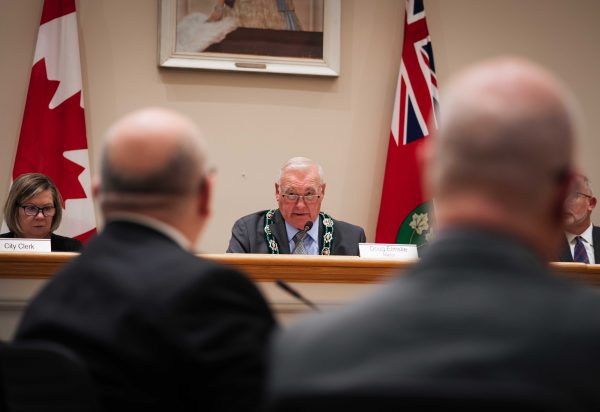Misleading headline about long-term financial plan creates communication challenge for council

Kawartha Lakes Mayor Doug Elmslie knew something was out of the ordinary when voters began stopping him at the grocery store and golf course in September, wanting to talk about the city’s 10-year long-term financial plan.
They were concerned about information circulating on social media referencing a local online newspaper’s headline that incorrectly suggested that in each year of the plan that there would be a guaranteed seven per cent increase in the city’s budget to fund core programs and projects across the city.
For weeks since this article was published, Elmslie and the city’s eight elected councillors have been inundated by angry and concerned citizens wanting more information and clarification about this supposed massive budget increase for the next decade.
As a group, Elmslie and council are now pushing back against the incorrect information about this at every opportunity they can.
In a telephone interview with Kawartha Lakes Weekly, Elmslie clarified a budget vs. a tax increase, what the long-term financial plan is and isn’t, and what impact its projections will have on the citizens of the city.
“The first thing I would like citizens to understand is that there is a difference between a budget passed by mayor and council and a tax increase. They are different numbers and one doesn’t directly increase the other,” Elmslie said. “So many factors including MPAC assessments which we have no control over, determine a potential increase for tax payers. Also, within that seven per cent number is the dedicated two per cent capital projects levy. When that levy is completed, it will disappear with no permanent impact on taxation.”
“What we passed was a 10-year plan that outlined the city’s needs and wants,” Elmslie said. “Each year a city budget will be deliberated. The (long-term financial plan) does not take into account any grants or other monies which may become available and lower rates of taxation. We have done a 10-year plan before. If you fail to plan, you plan to fail.”
Elmslie added that at this juncture, the financial plan is what the city thinks is going to happen but suggested that much beyond the third year of the plan staff is making educated guesses with the best possible data available.
“The (plan) is predicated on growth in the city,” Elmslie said. “If that growth doesn’t happen because let’s say there is a downturn in housing sales, it is back to the drawing board for the city.”
The key point about the financial plan that Elmslie wants residents to understand is what this current council can and cannot do in the name of future councils.
“First, and foremost,” Elmslie said, “this council and this mayor do not have the authority to make a budget for a future mayor.”
When asked about the value of a 10-year financial plan to the city, Elmslie made a comparison with the household budget that most local residents make as they plan for a new car or a new roof sometime in the near future.
“The city has to do the same thing,” Elmslie said. “We need to plan long-term for new employees, vehicles, information technology upgrades etc. But…a new mayor may have new ideas, to be debated year in and year out, and there are no guarantees that something that is in year one of the budget will still be there a few years in.”
Elmslie said he is not ruling out that some years in the next 10 the increase might be seven per cent if the city does all the things that it both needs and wants to do, but the current long-term financial plan in no way guarantees that happening.
“Sometimes the wants will get taken out by the council of the day,” Elmslie said.





